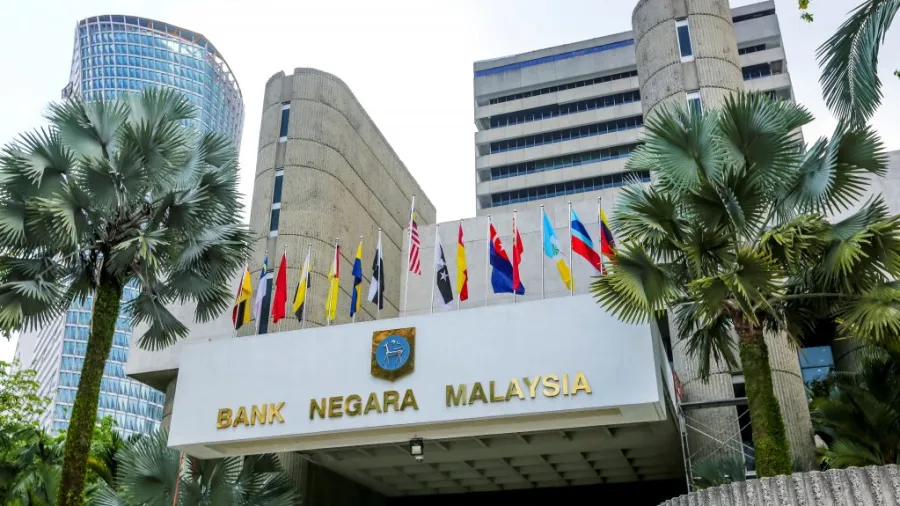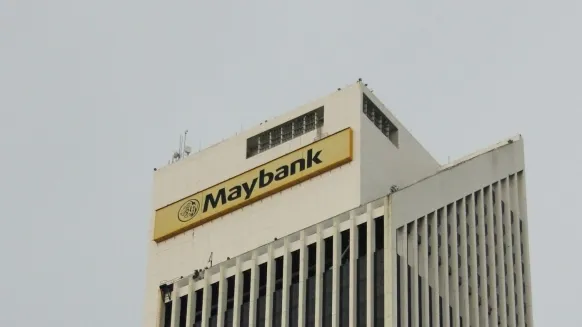
Malaysia's Islamic banks pull ahead of Indonesia in the digital curve
CIMB Group has pledged to invest $477m over the next five years to strengthen its digital platforms.
Once limited by their small physical presence, Asia’s Islamic banks are digitising rapidly to narrow the gap between conventional lenders on the back of strong regulatory support. The pace of digitisation, however, will not be equal between the two largest Islamic markets in the region as Malaysia pulls ahead of Indonesia in the digital curve and sets the pace for the rest of Asia. “Digitisation of Islamic banks will be faster in Malaysia than in Indonesia, because in Malaysia, Islamic operations are a more integral part of the country’s banking groups and are at the centre of the banks’ growth strategies,” Simon Chen, Vice-President – Senior Analyst at Moody’s Investors Service told Asian Banking & Finance.
Also read: How compatible are blockchain and Asia's growing Islamic banking sector?
Banks are facing fierce competition from more agile fintechs who are also starting to recognise the opportunity in the segment and taking advantage of gaps in the formal financial system. Incumbents need to act fast as Chen notes that the digital investments of Islamic banks are still in its ‘early stages’ with improvements largely focused on boosting technology and data analytics capabilities for consumer needs as opposed to a broad-based digitisation of operations and internal processes.
Fitch Solutions notes that there are as many as 20 companies offering shariah-compliant solutions in Malaysia but Indonesia takes the cake in having the largest number of fintech startups offering Islamic products raning from peer-to-peer financing, equity crowdfunding, remittances, personal finance and wealth management, according to a report cited by Moody’s. HelloGold in Malaysia and Blossom Finance in Indonesia are some companies leveraging on blockchain technology to provide shariah-compliant smart solutions. “While the emergence of fintech will intensify competition, it will also facilitate the expansion of Islamic banking, instead of stifling it, by driving the banks to increase investment in digitisation and keep up with evolving consumer demand for financial services,” said Chen.
Keeping up
Despite being in the nascent stages of digitisation, Malaysia’s dominance in the Islamic banking space remains clear. Unlike major banks in Indonesia, Moody’s notes that its two biggest Islamic banking groups, Maybank and CIMB, have adopted an ‘Islamic-first’ approach where they offer Islamic products to all new and existing customers across business lines which have helped boost the share of Islamic banking assets.
On its part, CIMB Group earmarked $477m (MYR2b) to strengthen its technology and data analytics capabilities from 2019-2023 and cater to a digital userbase which grew 23% to 4.9 million in 2018, data from Moody’s show. Maybank’s proactive digital approach is also bearing fruit as it accumulated 7.9 million digital users and saw online banking transactions surge 37% to 5.9 billion over the same period.
Standalone Islamic banks in Malaysia have also been beefing up their digital capabilities more aggressively than their Indonesian counterparts, according to Moodys. Bank Islam Malaysia Berhad has committed $71.70m (MYR300m) for its digital transformation from 2019-2021 and MBSB Bank Berhad is planning on shelling out nearly $60m (MYR250m) on a new platform that will support its digital ambitions and converting five out of its 45 branches into smart branches.
As a result of this approach, Islamic banking accounted for 59% of Maybank’s total financing 2018, up from 57% in the previous year. In comparison, Bank Mandiri Syariah, Indonesia’s largest Islamic bank, accounted for only 8% of overall group financing.
Regulatory boost
A significant reason behind Malaysia’s lead could be traced to comprehensive legal, tax and regulatory frameworks for Islamic banking that date as far back as the 1980s. To promote the sector’s growth and cement its regional dominance, the central bank issued guidelines on value-based intermediation (VBI) in October 2018 which, amongst other initiatives, encourages Islamic banks to explore new segments like social financing, SME financing and green financing.
Designed as an intermediation function, VBI sets out a financing and investment framework on how banks can incorporate environmental, social and corporate governance values into their business strategies, risk governance and operations.
“The Islamic finance industry today faces a strategic choice - to either continue on a path that largely ignores the stark social and environmental realities that confront humanity, or to thoughtfully chart a new path that fully embraces the idea and philosophy of finance beyond profits,” central bank governor Datuk Nor Shamsiah Mohd Yunus said in a keynote address during the Global Islamic Finance Forum 2018 (GIFF2018).
Although not mandatory, the VBI reflects the country’s ambition to become a regional hub for socially responsible investing and green financing. The launch comes years after the implementation of the sustainable and responsible investment (SRI) sukuk framework in 2014, which led to the issuance of the first green Islamic bond in Malaysia in 2017, according to Moody’s.
As of March 2019, the credit rating agency notes that there have been six green sukuk (bond) offerings to finance environment friendly buildings as well as solar and hydropower projects.
“Regulators in the two countries [Malaysia and Indonesia] are not just promoting growth. They are steering the banks to tackle emerging environmental, social and corporate governance (ESG)-related risks, while pursuing growth; a development which is credit positive,” said Chen.
“While it remains to be seen whether VBI will lead to better risk-adjusted returns for Islamic banks, it will help Islamic banks become more resilient to environmental, social and governance (ESG)-related risks, such as the banks’ exposure to industries or customers affected by climate change, ecological disasters, social unrest or poor corporate governance, which could in turn hurt the banks’ asset quality, profitability and liquidity,” he added.
On its part, Indonesia is seeking to increase the proportion of Islamic banking assets to 20% by 2024 from 6% in 2018. Demand for Islamic financial products and services is expected to increase as the government seeks to accelerate the halal economy in the next five years by strengthening the value chain of halal industries - for instance, making halal certification mandatory for all consumer products.
“Indonesia has made headway in improving coordination among various regulatory authorities to develop the Islamic financial sector. Among other policy priorities, efforts to improve public awareness and knowledge of Islamic finance, are also underway,” said Chen.
Taking a page out of Malaysia’s playbook, Chen said that Indonesia similarly unveiled bold plans to expand Islamic banking by making it mandatory to spin off Islamic window operations into standalone subsidiaries by 2024 and allowing Islamic operations to use the existing infrastructure – either physical or digital – of their parent banks, mimicking the strategies of Malaysia’s Maybank and CIMB.
In August, the Philippines also enacted a new law to regulate Islamic banking as part of efforts to cater to the Muslim community which account for around 6% of the country’s total population. Chen notes that the Philippines only has one Islamic bank which is government-owned. “[T]here needs to be greater efforts to boost market awareness and knowledge about Islamic financial services before commercial banks begin to invest resources to develop their Islamic banking capabilities.



















 Advertise
Advertise













